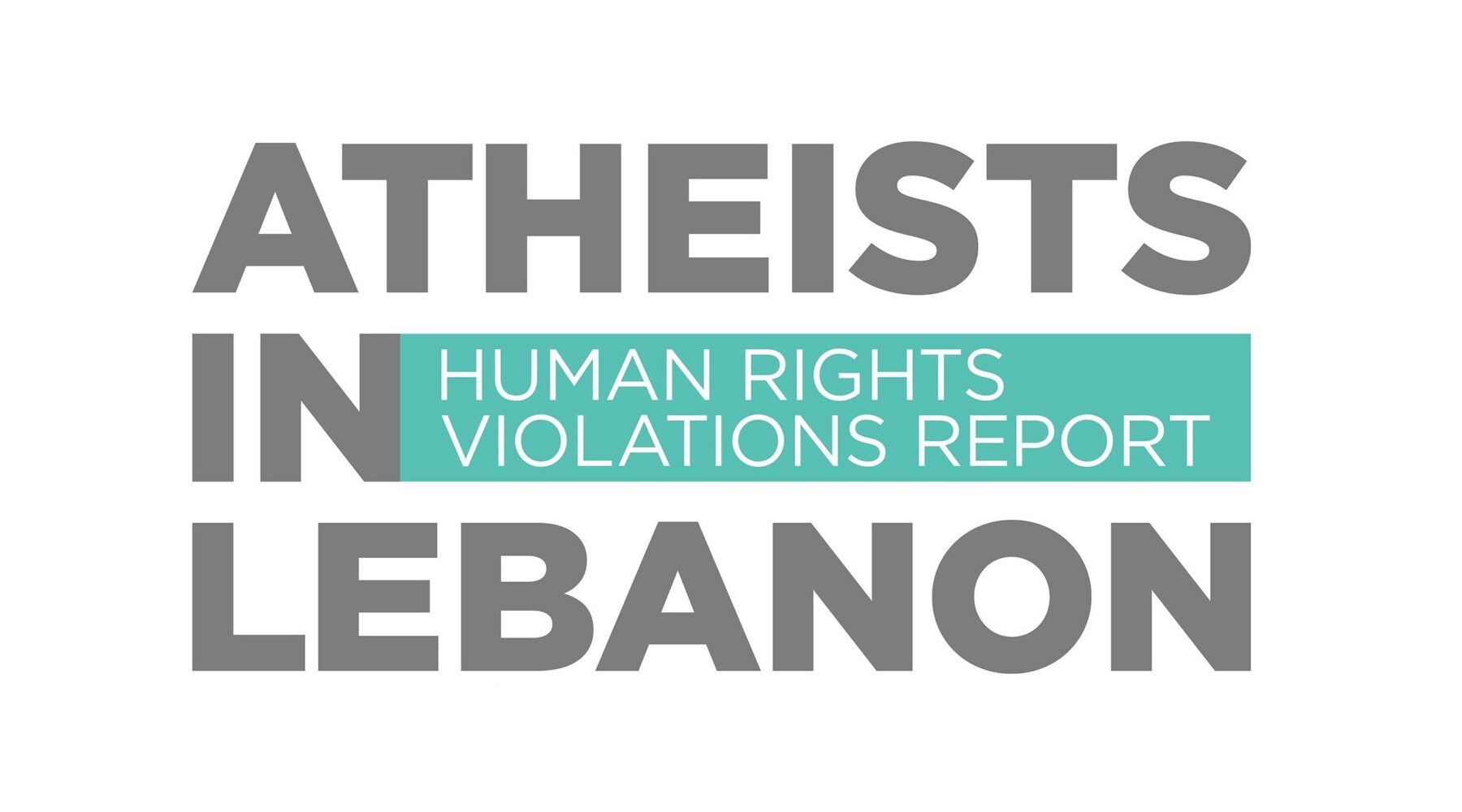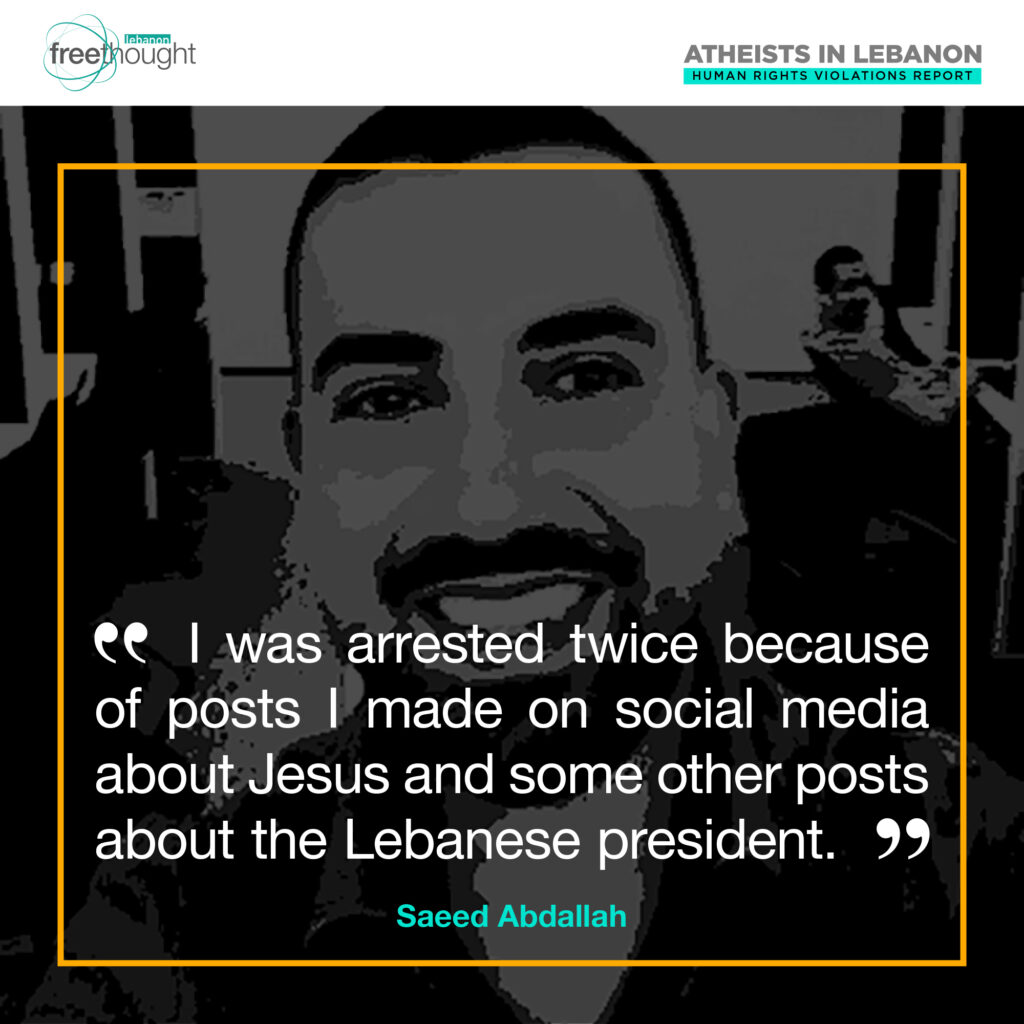


Lebanon is a country marked by sectarian tensions between its numerous and diverse ethnic and religious groups – the three main religious groups are Sunni Muslims (28.7%), Shia Muslims (28.4%), and Christians (36.2%). Atheists are a small and discriminated minority, and a new report published by Freethought Lebanon sheds light on this harsh discrimination against them in the country.
The report consists of four parts:
 A Media Analysis of 14 talk shows which found that 80% of the assessed material was biased against atheism and atheists;
A Media Analysis of 14 talk shows which found that 80% of the assessed material was biased against atheism and atheists; A Perception Survey which analyzed the experiences of 644 randomly selected atheists surveyed. 63% of participants have suffered moderate to severe discrimination because of their atheism, with only 37% having suffered little to very little discrimination. Among the challenges raised, participants indicated that: educational institutions instigate and incite against atheists; more than 73% feel that they have been treated unfairly by Lebanese personal status laws; and, an overwhelming 97% of atheists believe that the Lebanese political system neither respects their identity nor is inclusive of them. The great majority of participants, around 95%, have experienced at least one negative stereotype against their atheism, with the most common stereotype being that atheists are immoral and not trustworthy. More than 54% believe that their career will be negatively affected by their atheism and more than 90% reported that they practice self-censorship on their atheistic views in order to avoid social or legal problems.
A Perception Survey which analyzed the experiences of 644 randomly selected atheists surveyed. 63% of participants have suffered moderate to severe discrimination because of their atheism, with only 37% having suffered little to very little discrimination. Among the challenges raised, participants indicated that: educational institutions instigate and incite against atheists; more than 73% feel that they have been treated unfairly by Lebanese personal status laws; and, an overwhelming 97% of atheists believe that the Lebanese political system neither respects their identity nor is inclusive of them. The great majority of participants, around 95%, have experienced at least one negative stereotype against their atheism, with the most common stereotype being that atheists are immoral and not trustworthy. More than 54% believe that their career will be negatively affected by their atheism and more than 90% reported that they practice self-censorship on their atheistic views in order to avoid social or legal problems.

Sami Abdallah, President of Freethought Lebanon, commented:
“The aim of this study was to monitor and document the main human rights violations against atheists in Lebanon through five outcomes: four are research oriented and the fifth is a media campaign. This was done over a period of 6 months, by a team of 18 skilled and dedicated individuals.
“The aspirations of this work go far beyond defending the rights of the atheist community since the oppression against atheists is not a stand-alone issue, and atheists are one out of many oppressed groups in Lebanon and the region.
“I hope that we managed to provide with this report some concrete guiding material that can be used by human rights organizations and activists to better counter such violations, and promote real and meaningful tolerance in our community.
“I also hope that this work encourages other activists in the region to conduct similar studies in their countries. With that, we are happy to assist any other non-profit organization who is willing to conduct a similar study, by offering all the research resources that we developed, from surveying tools to detailed methodologies and other resources.”
Emma Wadsworth-Jones, Humanists At Risk Coordinator at Humanists International, commented:
“Humanists International congratulates our Associate Freethought Lebanon, which joined our global family in 2019 and since then has proven to be a key point of reference not only for Lebanon, but also for the whole Arab-speaking world.
Compared to other belief groups, few studies have been conducted into the experience and persecution faced by the non-religious. This rigorous study, conducted by a team of 18 researchers, is an important step in redressing this balance. The data collected provides convincing evidence of a need for reform in the country in order to ensure that all individuals’ rights are fully respected.”